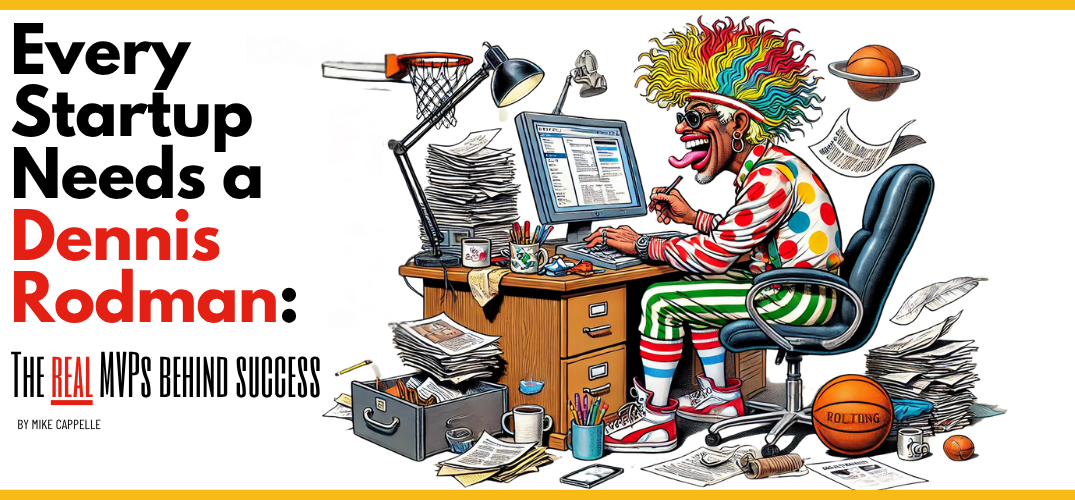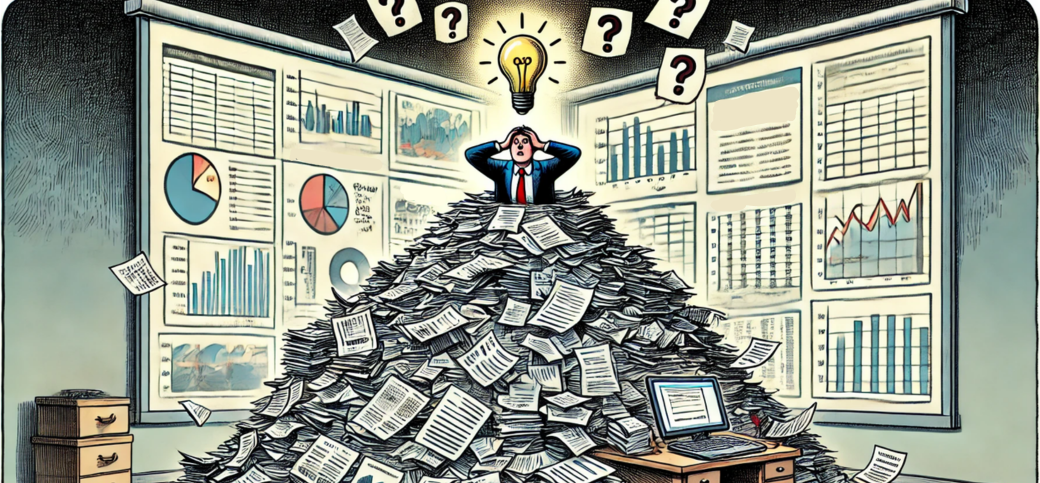Every Startup Needs a Dennis Rodman: The Real MVPs Behind Success
Startup Team MVP Business Strategy 3 minutes

Building a startup team is a lot like assembling a band of misfits and expecting them to perform like the '96 Chicago Bulls. You’ve got your dreamers, your doers, your wild cards—and somehow, you’ve got to make them all play together, harmonize even, if you want to make it through the grind of startup life. It’s not about having a team of flashy superstars. It’s about finding the Dennis Rodmans of the world—the people who do the dirty work, hustle, and take pride in keeping the machine running while someone else dunks.
See, everyone wants a Michael Jordan. They want that showy founder, the face of the franchise, the one with the slam dunks and buzzer-beaters. But what often goes overlooked in startups, just like in sports, is that you can’t win championships without the people who are willing to get bruised under the hoop. Your team’s real MVP might not be the point guard but the player who’s grabbing rebounds, throwing elbows, and quietly racking up the stats that don’t make it to the highlight reel.
The Wild Ride of Assembling a Startup Team: It’s Controlled Chaos
Startups are small, scrappy operations. You’ve got a handful of people trying to do everything under the sun, and the absence of just one person can feel like a gaping hole. If someone’s out sick, on vacation, or—God forbid—breaks a leg (more on that later), the whole team feels the strain.
That’s the madness of it. A startup isn’t the slick, well-oiled machine that big companies pretend to be. It’s like trying to conduct a symphony with half the orchestra missing and the other half still learning their instruments. And as a founder, you’re not only the conductor—you’re also the one sweeping up after the concert.
The truth is, you don’t need a full orchestra. What you need is a tight-knit group of people who can handle a range of tasks, adapt on the fly, and who actually give a damn. But finding these people? That’s like finding a needle in a haystack of overpriced consultants and flighty freelancers.
Take hiring. It’s tempting to fill the gaps quickly when you’re scaling, but hiring the wrong person in a startup can be a death sentence. You’re not looking for someone to fit into a corporate machine; you’re looking for someone who can help build the machine from scratch. You need to vet them early, test them thoroughly, and see how they handle chaos—because that’s exactly what they’re signing up for.
The Dennis Rodman Rule: You Need the Right Players in the Right Roles
Let’s talk about Dennis Rodman. When he joined the Chicago Bulls, no one expected him to outshine Michael Jordan or Scottie Pippen. He wasn’t there to be flashy or score 30 points a game. He was there to grab rebounds, box out opponents, and play gritty, relentless defense. Rodman didn’t need the spotlight; he needed to win.
In a startup, you need your own Rodmans. You need people who will embrace the dirty work, the unglamorous tasks that keep the wheels turning. Operations, customer support, logistics—these are the behind-the-scenes positions that don’t get the praise but are essential to keeping the ship afloat. Sure, you might have a visionary founder or a rockstar developer, but without your Rodmans, your startup will crumble the second things get tough.
Rakesh, for example, is one of those players for us at WOWS. He’s been with us for a year now, and in that short time, he’s become the glue holding a lot of things together. Recently, he broke his leg (we wish him a speedy recovery!), and we’ve been reminded just how important his role is. He’s not out there making flashy moves, but he’s the one who keeps operations running smoothly behind the scenes.
Risk Mitigation: Building a Bench of Backup Players
If you’ve ever watched the Golden State Warriors dominate, you’ll notice something interesting: they don’t just rely on Steph Curry. Sure, Curry is the face of the franchise, but when he’s out, they’ve got other players who can step up—whether it’s Draymond Green locking down defense or Klay Thompson draining threes. That’s how you build a sustainable team. You don’t rely on one player; you build depth.
In a startup, that depth comes from having team members who are cross-trained and processes that are documented. The last thing you want is to have all your eggs in one basket. If one key person leaves or is out unexpectedly, you need backups who can step in and keep things running. And that’s not just about redundancy—it’s about flexibility. It’s about ensuring that no one person is indispensable to the point of being irreplaceable.
It’s also about process. Make sure everything is documented, from your onboarding system to your financial workflows. You want a playbook that anyone can follow if they need to. This isn’t just risk mitigation; it’s survival.
ESOP and Loyalty: Give People a Stake in the Game
Let’s be real: you’re not going to be able to compete with the big boys on salary, especially in the early days. But what you can offer is skin in the game. Equity. A piece of the pie. An Employee Stock Ownership Plan (ESOP) is more than just a nice perk—it’s a way to build loyalty and trust. When your team has ownership in the company, they’re not just employees—they’re stakeholders.
Give people freedom too. Let them make mistakes, learn, grow. The beauty of startups is their ability to pivot and evolve quickly. Allow your team members to take risks, to experiment, to fail forward. It’s messy, sure. But it’s also where innovation comes from.
From the Trenches: Lessons in Building a Championship Team
Startups aren’t for the faint of heart. They’re chaotic, unpredictable, and full of surprises. But with the right team, they’re also exhilarating. The key to building a successful startup team isn’t about finding the flashiest players; it’s about finding the right players—the ones who will rebound, defend, and do the dirty work.
So, here’s to the Rakeshes of the startup world. The Dennis Rodmans of business. The ones who keep the machine running, even when the stars are taking all the glory. Build your team like a championship squad: with depth, grit, and a whole lot of resilience. Because in the end, it’s not always the flashy players who win the game—it’s the team that knows how to work together when things get tough.
About the Author
Mike Cappelle is the co-founder and COO of WOWS Global, where he leads product development and manages day-to-day operations. With nearly two decades of experience across the startup ecosystem, Mike has a passion for building resilient teams and creating innovative business solutions. Drawing from his journey in Silicon Valley, Europe, and Asia, he brings a hands-on, no-nonsense approach to leadership and growth, always ready to embrace the chaos and find order in it.
Related Posts
-

Startup MVP Lean Startup Feedback 5 minutes
The MVP: Turning Bare Bones Into Billion-Dollar Dreams (Or a Glorified Prototype)
The MVP (Minimum Viable Product) is your scrappy, bare-bones version of your grand vision. Learn how to strike the right balance between too minimal and too polished while preparing for an MVP launch in this startup guide. -

Data-Driven Decisions Business Strategy Data Overload 3 minutes
Data-Driven Decisions: The Fine Line Between Insight and Overload
Data is essential for modern decision-making, but too much can lead to overload. Learn how to find the balance between data insight and analysis paralysis for smarter, more confident decisions.
